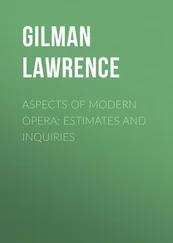Lawrence Echard - Prefaces to Terence's Comedies and Plautus's Comedies (1694)
Здесь есть возможность читать онлайн «Lawrence Echard - Prefaces to Terence's Comedies and Plautus's Comedies (1694)» — ознакомительный отрывок электронной книги совершенно бесплатно, а после прочтения отрывка купить полную версию. В некоторых случаях можно слушать аудио, скачать через торрент в формате fb2 и присутствует краткое содержание. Издательство: Иностранный паблик, Жанр: Критика, foreign_antique, foreign_prose, на английском языке. Описание произведения, (предисловие) а так же отзывы посетителей доступны на портале библиотеки ЛибКат.
- Название:Prefaces to Terence's Comedies and Plautus's Comedies (1694)
- Автор:
- Издательство:Иностранный паблик
- Жанр:
- Год:неизвестен
- ISBN:нет данных
- Рейтинг книги:4 / 5. Голосов: 1
-
Избранное:Добавить в избранное
- Отзывы:
-
Ваша оценка:
- 80
- 1
- 2
- 3
- 4
- 5
Prefaces to Terence's Comedies and Plautus's Comedies (1694): краткое содержание, описание и аннотация
Предлагаем к чтению аннотацию, описание, краткое содержание или предисловие (зависит от того, что написал сам автор книги «Prefaces to Terence's Comedies and Plautus's Comedies (1694)»). Если вы не нашли необходимую информацию о книге — напишите в комментариях, мы постараемся отыскать её.
Prefaces to Terence's Comedies and Plautus's Comedies (1694) — читать онлайн ознакомительный отрывок
Ниже представлен текст книги, разбитый по страницам. Система сохранения места последней прочитанной страницы, позволяет с удобством читать онлайн бесплатно книгу «Prefaces to Terence's Comedies and Plautus's Comedies (1694)», без необходимости каждый раз заново искать на чём Вы остановились. Поставьте закладку, и сможете в любой момент перейти на страницу, на которой закончили чтение.
Интервал:
Закладка:
Lawrence Echard
Prefaces to Terence's Comedies and Plautus's Comedies (1694)
INTRODUCTION
Perhaps no higher praise can be paid a translator than posterity’s acceptance of his work. Laurence Echard’s Terence’s Comedies , first printed in 1694 in the dress and phraseology of Restoration comedy, has received this accolade through the mediation of no less a modern translator than Robert Graves. In 1963 Graves edited a translation of three of Terence’s plays. His Foreword points to the extreme difficulty of translating Terence, and admits his own failure – “It is regrettable that the very terseness of his Latin makes an accurate English rendering read drily and flatly; as I have found to my disappointment.” Graves’s answer was typically idiosyncratic. “A revival of Terence in English, must, I believe, be based on the translation made.. with fascinating vigour, by a young Cambridge student Laurence Echard..” 1 1 The Comedies of Terence: Echard’s Translations Edited with a Foreword by Robert Graves (London, 1963), pp. viii-ix. Graves (p. ix) says that Echard’s translation of Terence was made in 1689, when he was only nineteen. I have been unable to find any evidence in support of this statement.
The Prefaces to Echard’s Terence’s Comedies: Made English .. (1694) and to his Plautus’s Comedies, Amphitryon, Epidicus, and Rudens (1694) are of interest for several reasons. Both of them outline the intentions and rationale which lie behind the translations. They also throw light upon the sense of literary rivalry with French achievements which existed in some quarters in late seventeenth-century England, make comments on the contemporary stage, and are valuable both as examples of seventeenth-century attitudes to two Classical dramatists, and as statements of neoclassical dramatic theory. Finally, they are, to some extent, polemical pieces, aiming at the instruction of contemporary dramatists.
Laurence Echard, or Eachard (1670? -1730), was a minor cleric, a prolific hack, and an historian, a typical enough confusion of functions for the time. It suggests that Echard had energy, ability, and political commitment, but lacked a generous patron or good fortune to take the place of private means. Within the Church his success was modest: he was installed prebendary of Louth in 1697, but had to wait until 1712 before becoming Archdeacon of Stow. Echard achieved the little fame by which he is remembered as an historical writer. Perhaps he is more accurately described as a compiler rather than as an historian. His major works were The Roman History, from the Building of the City, to the Perfect Settlement of the Empire by Augustus Caesar .. (1695-98), the equally comprehensive A General Ecclesiastical History from the Nativity of Our Blessed Saviour to the First Establishment of Christianity .. (1702), his all-inclusive The History of England from the first Entrance of Julius Caesar.. to the Conclusion of the Reign of King James the Second .. (1707-18), and the more detailed but equally long work, The History of the Revolution, and the Establishment of England in.. 1688 (1725).
Echard’s career as a publisher’s jack-of-all-trades ran concurrently with his life’s work on history, and showed a similar taste for the voluminously encyclopedic. In 1691 he graduated B.A. at Christ’s College, Cambridge, and published four works under the imprint of Thomas Salusbury: A Most Complete Compendium of Geography; General and Special; Describing all the Empires, Kingdoms, and Dominions in the Whole World , An Exact Description of Ireland. , A Description of Flanders. , and the Duke of Savoy’s Dominions most accurately described . 2 2 No copy of the Duke of Savoy’s Dominions appears to be extant. It is not recorded in Wing, but appears in The Term Catalogues, 1688-1709 ., ed. Edward Arber (1903-1906), II, 380. This must have been much smaller than Echard’s other publications in this year: it cost only 3d. against the first two’s 1s. 6d.
These were followed in 1692 by The Gazetteer’s or Newsman’s Interpreter: being a Geographical Index .. Two years later the translations of Plautus and Terence were published.
All of this work was clearly irrelevant to his main interests: in 1695 he had been urged to undertake his General Ecclesiastical History , and by that time he was already at work upon his Roman History (1695-98). 3 3 A General Ecclesiastical History .. (London, 1702), sig. b1.
Into the bargain, he was in residence at Cambridge until 1695, for he did not gain his M.A. until that year. Despite the apparent success of his publisher’s enterprises ( A Most Complete Compendium was in its eighth edition by 1713, and The Gazetteer’s or Newsman’s Interpreter reached a twelfth in 1724), little of the profit reached the penurious Echard. In 1717 Archbishop Wake wrote to Addison that “His circumstances are so much worse than I thought, that if we cannot get somewhat pretty considerable for Him, I doubt He will sink under the weight of his debts..” 4 4 The Letters of Joseph Addison , ed. Walter Graham (Oxford, 1941), p. 504.
The sheer quantity of work which Echard accomplished in these early years is astonishing: it is no wonder that in the Preface to the Plautus he explained that “business” had prevented him from translating more than three of the comedies, remarking, “.. I have taken somewhat less time than was necessary for the translating such an extraordinary difficult Author; for this requires more than double the time of an Historian or the like, which was as much as I cou’d allow my self” (sig. b3).
In all of his work Echard sought and acknowledged the help of a whole series of unnamed encouragers and authorities. For the Plautus he “had the Advantage of another’s doing their [i.e., ”these“?] Plays before me; from whose Translation I had very considerable Helps.” (sig. b4). Apart from that aid, the Plautus , on the evidence offered by the title-page and the Preface, was all Echard’s own. This is not the case with the Terence , which was translated by a symposium, with the Preface being written by Echard on the group’s behalf. As a result, its Preface uses “we” throughout where the Plautus uses “I.” When the first edition of the Terence appeared it gave the authorship as “By Several Hands,” but later editions are more detailed, and specify that the work was done “By Mr. Laurence Echard, and others. Revis’d and Corrected by Dr. Echard and Sir R. L’Estrange.” The fourth edition also stated firmly in 1716, “The PREFACE, Written by Mr. Laurence Echard ” (p. i).
The only discrepancy which might seem to deny Echard’s authorship of the Preface to the Terence is the fact that the two Prefaces contradict one another over the way in which scenes should be marked. The Preface to the Terence simply says that exits and entrances within the acts are a sufficient indication that the scene has changed without numbering them, “for the Ancients never had any other [method] that we know of” (p. xxii). The Plautus on the other hand, numbers the scenes, and the Preface comments, “I have all the way divided the Acts and Scenes according to the true Rules of the Stage.” (sig. b2v). Since this was an open question, however, in neoclassical dramatic theory, the simplest explanation is that Echard was free to do as he believed in the Plautus , which was all his own, but was, in the Preface to the Terence , expressing the views of the whole group of translators.
Читать дальшеИнтервал:
Закладка:
Похожие книги на «Prefaces to Terence's Comedies and Plautus's Comedies (1694)»
Представляем Вашему вниманию похожие книги на «Prefaces to Terence's Comedies and Plautus's Comedies (1694)» списком для выбора. Мы отобрали схожую по названию и смыслу литературу в надежде предоставить читателям больше вариантов отыскать новые, интересные, ещё непрочитанные произведения.
Обсуждение, отзывы о книге «Prefaces to Terence's Comedies and Plautus's Comedies (1694)» и просто собственные мнения читателей. Оставьте ваши комментарии, напишите, что Вы думаете о произведении, его смысле или главных героях. Укажите что конкретно понравилось, а что нет, и почему Вы так считаете.












